Comprehension skills Normal Reading Worksheets for 6-Year-Olds
5 filtered results
-
From - To
Enhance your 6-year-olds' reading journey with our comprehensive "Comprehension Skills Normal Reading Worksheets." Designed specifically for early learners, these engaging worksheets focus on building essential comprehension skills. Students will explore stories and answer questions that promote understanding, retention, and critical thinking. You'll find activities that nurture their ability to identify main ideas, make inferences, and relate personal experiences to texts. Our user-friendly format makes learning fun and interactive, ensuring that young readers stay engaged while developing a solid foundation in reading comprehension. Download the worksheets today and watch your child's confidence and literacy skills flourish!
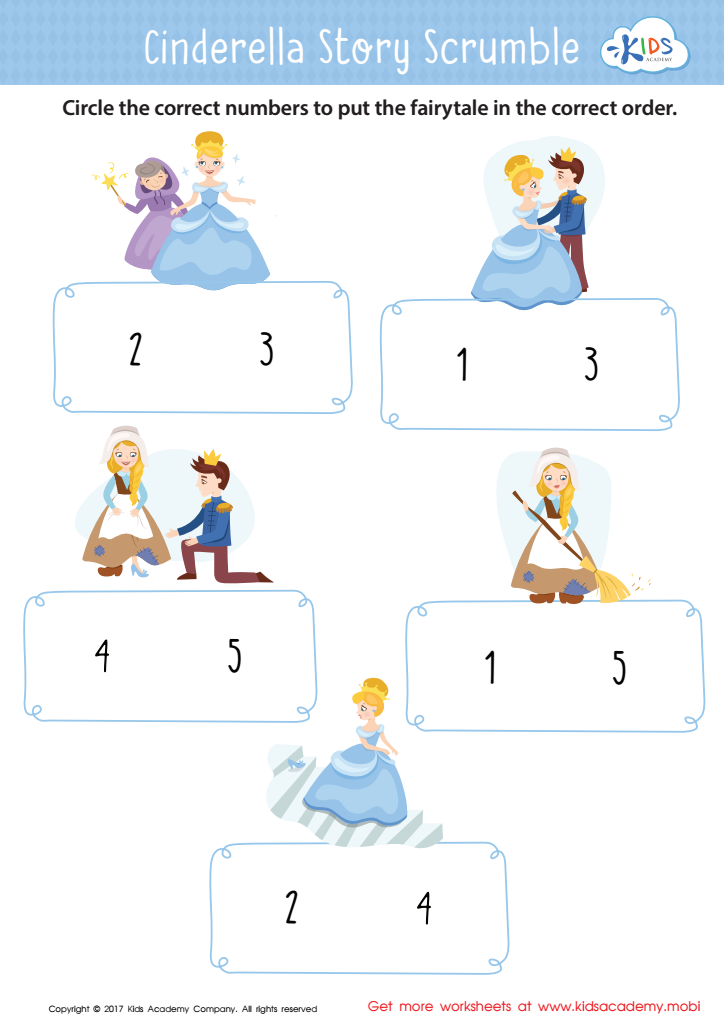

Cinderella Story Sequencing Worksheet
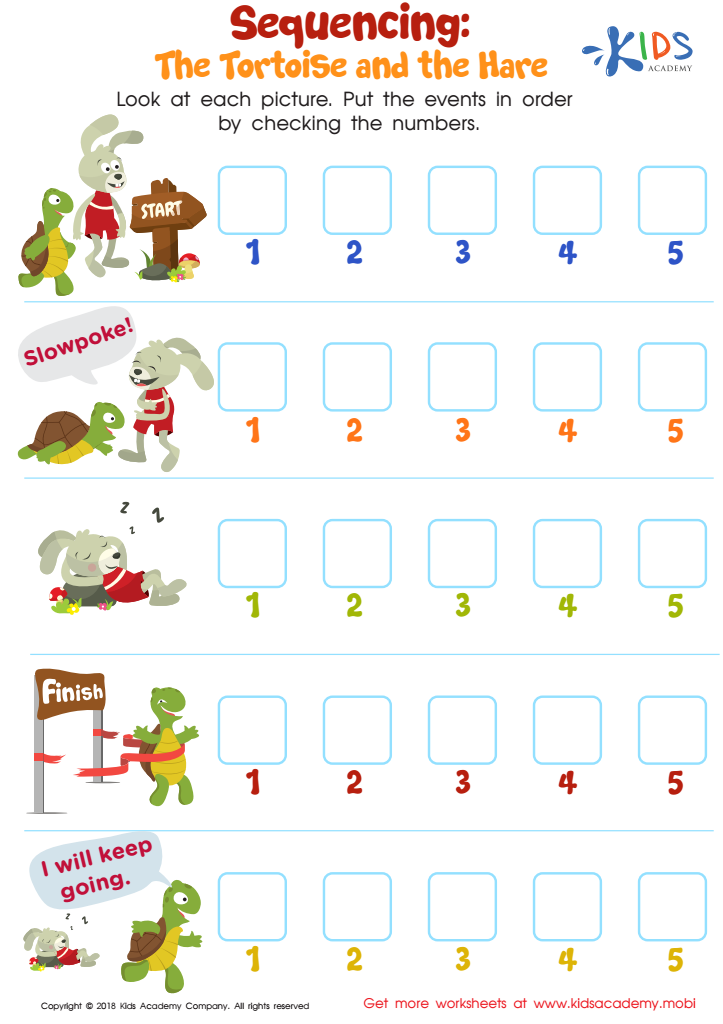

Sequencing: The Tortoise and the Hare Worksheet
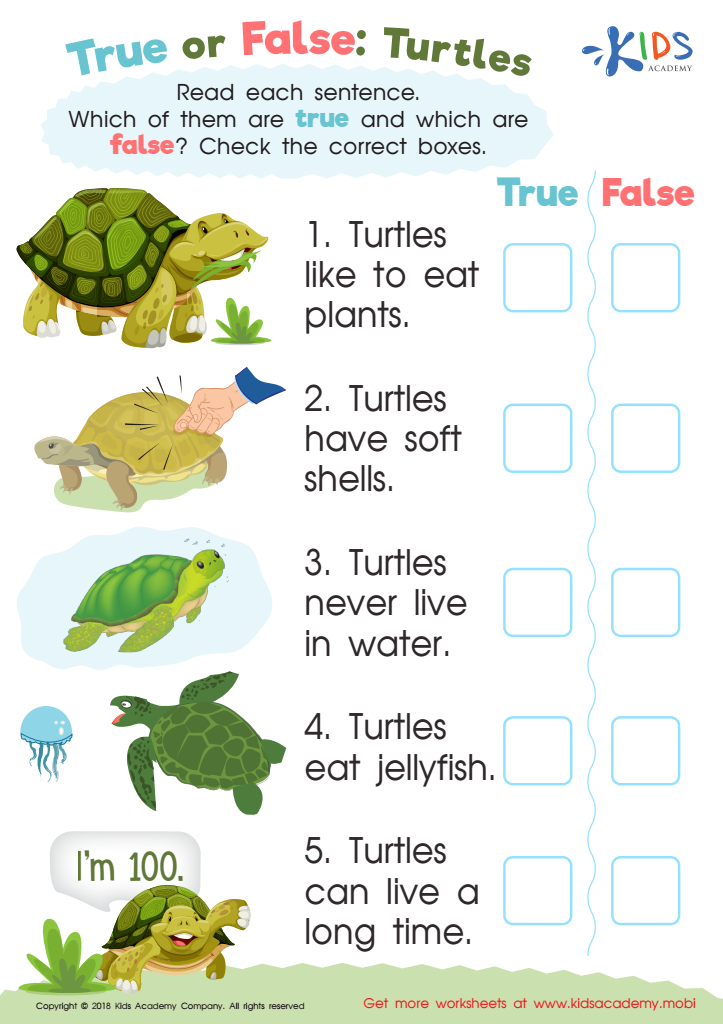

True or False: Turtles Worksheet
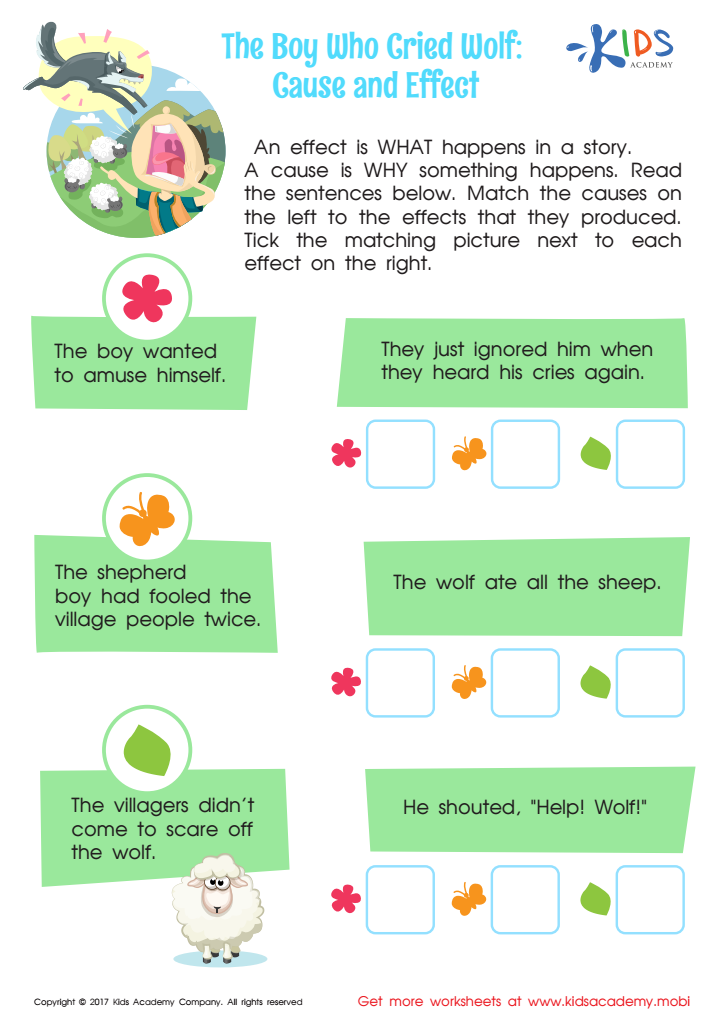

The Boy Who Cried Wolf: Cause and Effect Worksheet
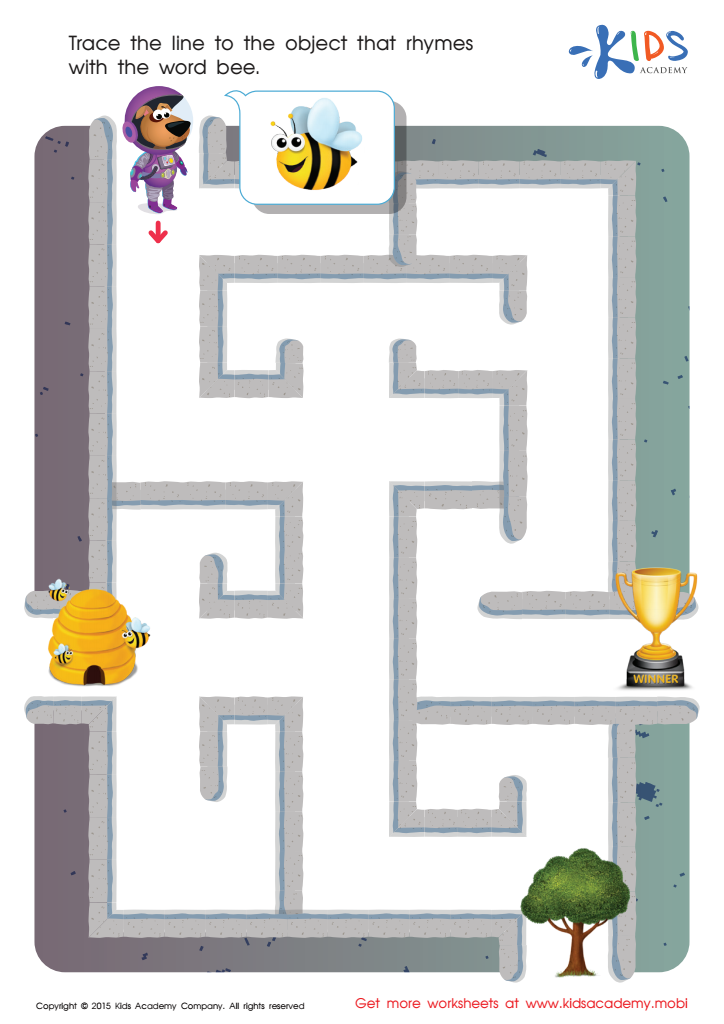

Bee Rhyming Words Worksheet
Comprehension skills for six-year-olds are crucial for several reasons, making it essential for parents and teachers to prioritize this aspect of learning. At this age, children transition from learning to read to reading to learn, meaning that understanding what they read becomes imperative for their overall educational journey.
Firstly, strong comprehension skills help children make connections between texts and their own experiences, fostering critical thinking and creativity. As they engage with stories, they develop vocabulary and a deeper understanding of language, which enhances communication skills.
Secondly, comprehension lays the foundation for academic success across subjects. Kids who understand what they read can follow instructions, grasp mathematical concepts presented in word problems, and interpret science texts, promoting a culture of inquiry and learning.
Moreover, fostering these skills early ensures children develop a love for reading, leading to lifelong learning. When children can enjoy and interact with texts, they are more likely to become enthusiastic readers.
Engaging parents and teachers in nurturing comprehension skills also encourages collaboration fostered through activities like storytelling, discussions, and shared readings. This teamwork creates a supportive literacy environment, helping children thrive academically and emotionally as confident learners.
 Assign to My Students
Assign to My Students



















